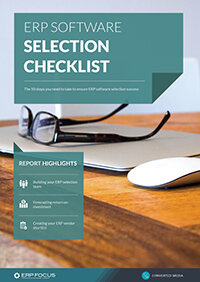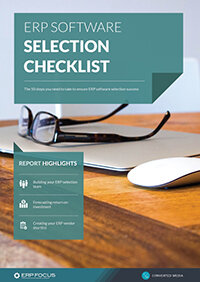How to identify an ERP selection methodology for your project
A cursory examination of today’s long list of ERP selection methodologies suggests that as the old saying goes, “opinions are like rear-ends; everyone has one.” Consequently, there is no such thing as a “perfect” process, when attempting to identify the “right” ERP system, since only the manager knows exactly what he/she wants when it goes down to the wire.
However, there are several common approaches that can apply to many enterprise methodology conundrums. As a result we thought we’d take a minute to define several of them, in the hopes that when you find yourself facing the challenge of ERP selection, you’ll at least have a fighting chance of getting the job done efficiently the first time.
1. The bottom-up cost approach
If you’re managing a transitional company that is moving away from a small to mid-sized enterprise cost footprint, out-of-pocket expenditures can sometimes be a real problem. If pinching pennies is a guiding management constraint, a bottom-up focus based on daily burn rate becomes critical.
Recommended reading: 50-step ERP software selection checklist
In this case, there a host of ERP selection methodologies that cost nothing, ranging from internally researched Wikis, to the pro bono utilization of comprehensive whitepapers and case studies provided by larger consulting firms or vendors. The upside is that you’ll get most of the information you will need; while the downside is that you’re going to have to do all the thinking yourself, although in this case, that approach is likely to pay a host of other dividends downstream.
2. The scale-limited approach
Believe it or not the particular scale of a given enterprise becomes a critical element when choosing a practical ERP selection methodology. In this case, you don’t want to get into the selection decision making process business with a proprietary doctrine unless those elements match your own operational thinking and constraints. To do otherwise, will run the risk of ending up with an ERP that offers all kinds of functionality that is irrelevant to your company operations, not to mention wasting money that could be better utilized elsewhere.
3. The culture first approach
Every company is different and operates with its own business culture. So, when considering ERP selection methodologies, each choice should support similarly-relevant cultural values. For example, if your company is very lean and operates on the basis of thin management precepts, then the applied ERP methodology should utilize an equally lean doctrine. On the other hand, if your company is mid-sized or large and utilizes a more bureaucratic management and operational culture, then the methodology should provide for a similar level of granularity.
when considering ERP selection methodologies, each choice should support relevant company cultural values
4. The end-game approach
As suggested earlier in this article, each ERP consultant and vendor has its own views of what are, and are not, critical ERP project elements. While one might assume that the utilization of a particular ERP selection methodology should be fairly straightforward, as a practical matter, this is untrue. After all, receiving sets of comprehensive next-step lists are one thing, but figuring out how to roll them into your own company’s planning is another.
This is where an “end-game” approach, or as some might say the “customer care first” play comes to the fore; you will find yourself selecting an ERP solution before you can leverage and test the vendor’s support services and culture. This approach can offer an early decision point since, again, identifying a selection methodology on paper is one thing, but finding the right partner to work with can sometimes pose an even larger problem.
Again, these are some central mileposts to use when navigating your own ERP selection process, but having a wide range of project considerations is always better than the inverse.
Free white paper

60-Step ERP Selection Checklist
Get the comprehensive checklist for your ERP selection project

Featured white papers
-

ERP Software Pricing Guide
Get the latest pricing information on over 80 popular ERP systems, and learn how to budget for your ERP project in our free guide
Download -

60-Step ERP Selection Checklist
Get the comprehensive checklist for your ERP selection project
Download -

ERP Demo Guide & Scorecard
Master your ERP demo with 5 easy steps using our free guide (includes demo scorecard)
Download
Related articles
-

The best ERP systems for process manufacturing
Consider these ERP systems when selecting your next process manufacturing ERP
-

CMMC Compliance: What Aerospace and Defense Manufacturers Need to Know
Key insights on CMMC compliance, deadlines, and securing DoD contracts with CMMC 2.0 certificatio...
-

5 ERP pricing definitions you need to understand
Have you mastered the ERP pricing lexicon yet? Getting to grips with these five definitions is a ...

